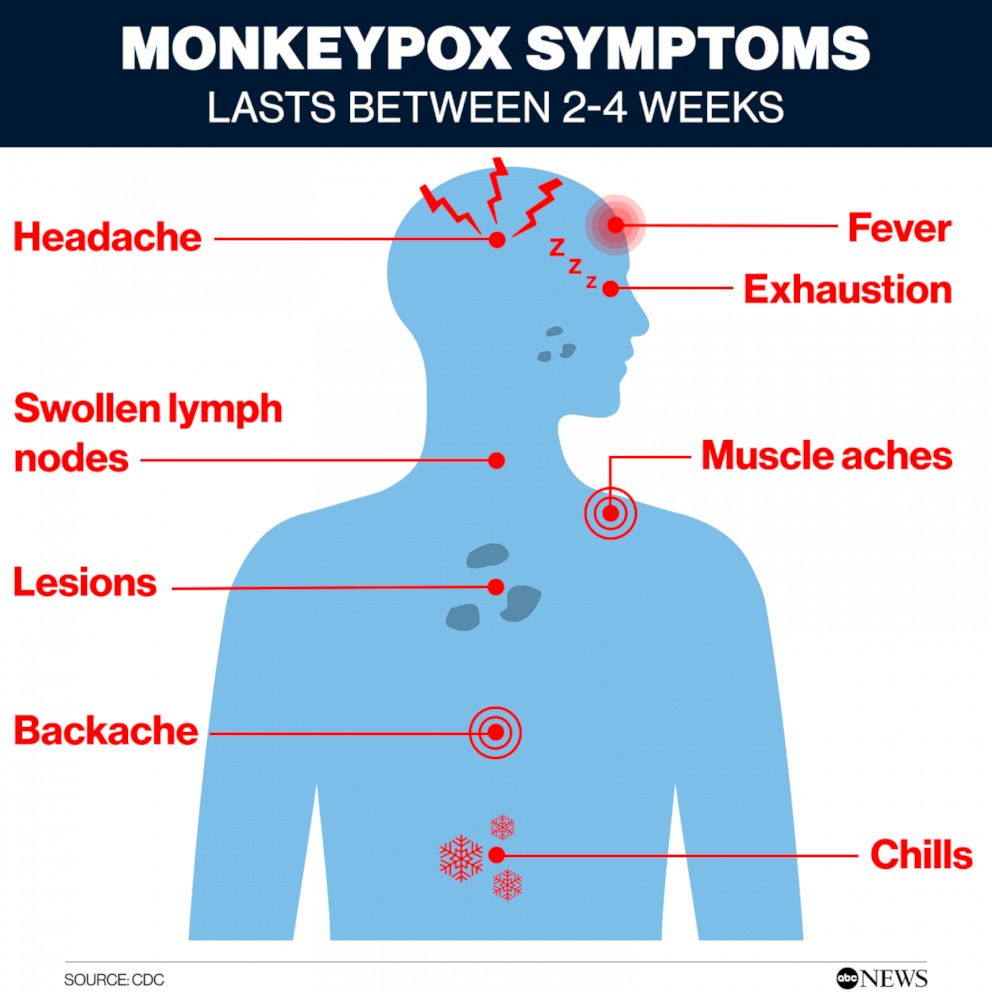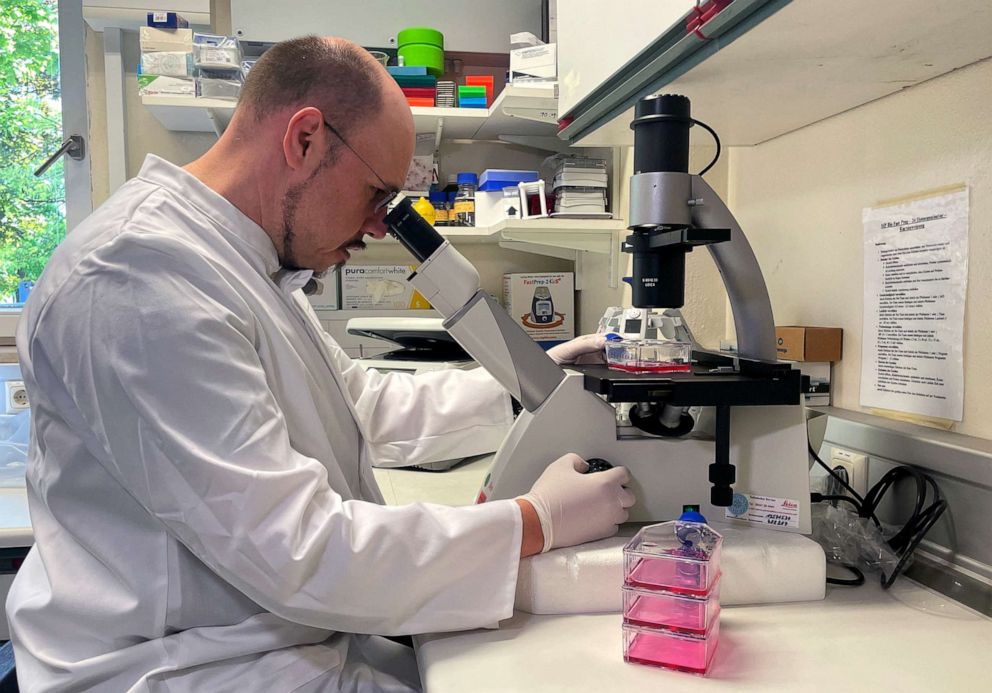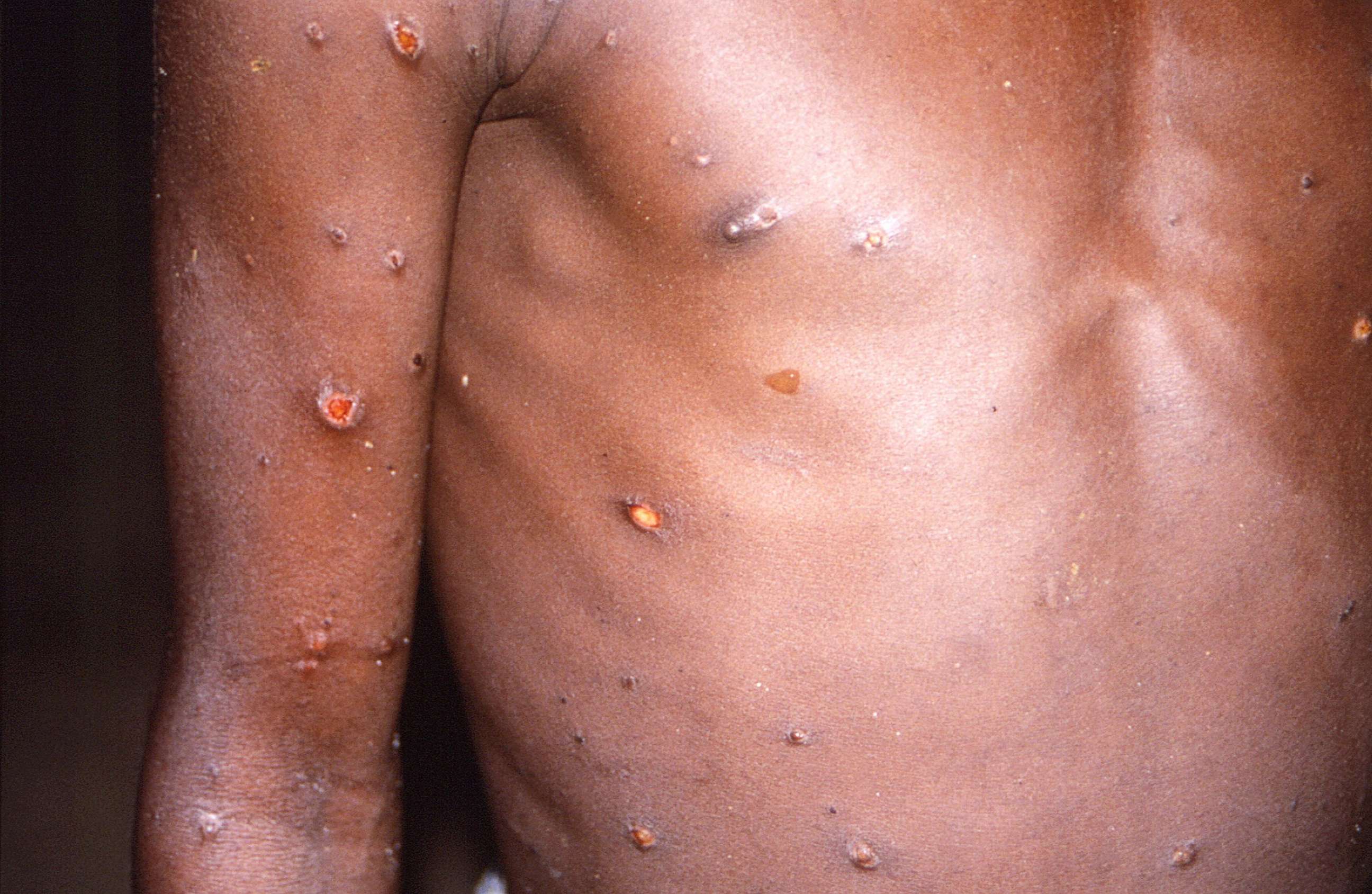These are the symptoms of monkeypox and how to treat them
Monkeypox symptoms generally last between two and four weeks.
Cases of monkeypox continue to rise as a recent outbreak reaches countries in North America and Europe, where the disease is not commonly found.
As of Wednesday, 189 infections were confirmed and 94 are suspected in 19 non-endemic nations, according to Global Health.
Of those cases, one is confirmed and seven are suspected in the U.S. across six states, Dr. Jennifer McQuiston, deputy director of the Division of High-Consequence Pathogens and Pathology at the Centers for Disease Control and Prevention, said during a media briefing Monday.
"We're in the early days of this response," she said. "It's likely that there are going to be additional cases reported in the United States."
She continued: "I don't think that there's a great risk to the general community from monkeypox. right now, in the United States. I think that we need to pay close attention to the communities in which this might be circulating, so that we can communicate effectively with them and help bring this outbreak under control."

How monkeypox is transmitted
Monkeypox is a cousin of the smallpox virus and causes similar, but milder, symptoms in humans, according to the CDC.
It is also less transmissible than smallpox; contracted from animals or other humans.
Animals pass the disease to humans either through a bite or a scratch, and people can also catch monkeypox from preparing and consuming infected bush meat.
Human-to-human transmission occurs either through hugging, touching or prolonged face-to-face contact.
"It's not a situation where if you're passing someone in the grocery store, [you're] going to be at risk for monkeypox," McQuiston said.
There are two strains of monkeypox. The milder strain -- known as the West African strain -- is the one currently behind the global outbreak, she added.
Although cases of monkeypox were recently detected among individuals who identify as gay, bisexual or men who have sex with men, there is currently no evidence that the virus transmits through sexual contact.
Monkeypox symptoms
The incubation period from the time a person is exposed to when symptoms first appear can be anywhere from five to 21 days, according to the World Health Organization.
Typically, the disease begins with a fever, headache, fatigue, chills and muscle aches. Unlike smallpox, however, monkeypox also causes swollen lymph nodes.

Within one to three days, those infected will typically develop a rash which starts on the face and then spreads to the rest of the body.
Lesions start out as dark spots on the skin before progressing to bumps that fill with fluid and/or pus.
Finally, the lesions will scab over and eventually fall off.
People may be left with scars or skin discoloration, but health officials say a person is no longer infectious once the scabs are gone.
To determine if someone has the disease, state-run laboratories first run tests to determine if the patient has orthopoxvirus, which contains four species of virus that include monkeypox.
The CDC performs confirmatory testing to determine if a person has monkeypox.
How to treat monkeypox
Most people with monkeypox typically recover within two to four weeks without specific treatments.
Antivirals typically used for smallpox have been shown to be effective in lab studies and in animal trials.
The smallpox vaccine also has been shown to reduce the risk of monkeypox after a person has been exposed.

Data from Africa suggests one vaccine, called JYNNEOS, is at least 85% effective in preventing monkeypox and, if a breakthrough case does occur, may make the disease less severe.
During the media call, the CDC said the federal government is planning to release some vaccines from the national stockpile, but only a small number of people who've been exposed will be vaccinated.
'This is not COVID," McQuiston said. "We're vaccinating contacts of known cases if they fall into a high-risk category."
She added that there is currently no need for a mass vaccination campaign for the general public.
Monkeypox does not typically lead to death. However, in Africa, it has been found to cause as many as one in 10 deaths among infected people, according to the CDC.
ABC News' Sony Salzman contributed to this report.




